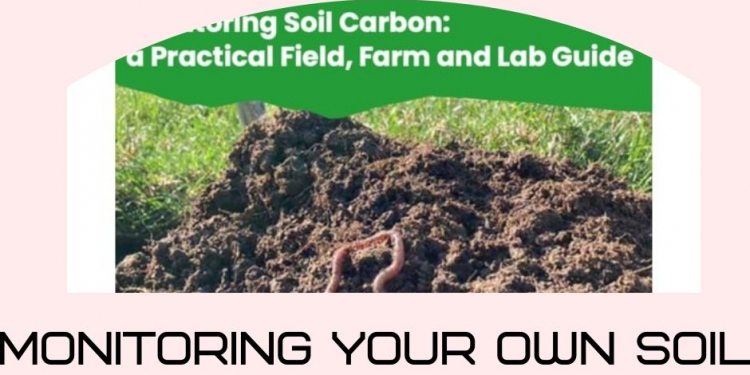A NEW practical field, farm and lab guide for monitoring soil carbon has been launched to answer key questions for robust on-farm field monitoring of soil carbon and associated indicators of soil health.
The guide has been produced as part of the Soil Carbon project and written in collaboration with Duchy College, Plymouth University, Rothamsted Research and the Farm Carbon Toolkit. It is designed and printed with support from the Farm Net Zero project, funded by the National Lottery Climate Action Fund and is relevant to farmers seeking to measure and understand their soil carbon stocks – as well as landowners, advisors and researchers.
Supply chains and organisations seeking to reward farmers for improving soil carbon stocks will also find the guide helpful. However it should be noted that it’s not written as a formal standard or detailed protocol. The guide will be accompanied with detailed supplementary materials stemming from the ERDF Agri-Tech Cornwall funded “Soil Carbon Project”(2018 to 2021).
Robust estimates of soil carbon stocks can be complicated, not least because soil carbon levels are constantly in-flux with in-field variation. Estimates are also heavily influenced by the way in which we collect, process and analyse soil samples. The Soil Carbon project has been working with research partners to investigate how soil carbon estimates are influenced by variables such as when the samples are taken, how many samples are taken and at what pattern across the field.
The guide consists of answers to the following core questions:
- When to conduct your soil carbon sampling?
- What fields to select on your farm?
- How to sample within those fields?
- At what depths should samples be taken?
- How often should you repeat your sampling?
- How to collect and prepare your samples?
- What are the options for the lab analyses?
- What are the main soil health indicators that should be monitored?
- What are the outputs and benefits?
A source: https://www.potatoreview.com







